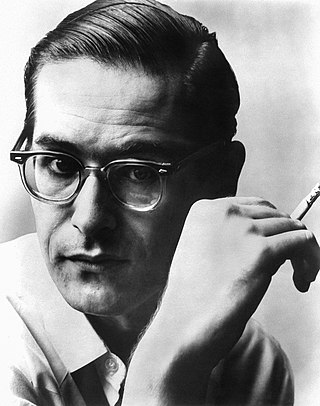
William John Evans was an American jazz pianist and composer who worked primarily as the leader of his trio. His use of impressionist harmony, block chords, innovative chord voicings, and trademark rhythmically independent, "singing" melodic lines continue to influence jazz pianists today.
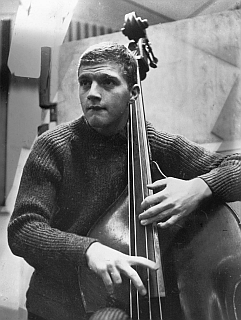
Rocco Scott LaFaro was an American jazz double bassist known for his work with the Bill Evans Trio. LaFaro broke new ground on the instrument, developing a countermelodic style of accompaniment rather than playing traditional walking basslines, as well as virtuosity that was practically unmatched by any of his contemporaries. Despite his short career and death at the age of 25, he remains one of the most influential jazz bassists, and was ranked number 16 on Bass Player magazine's top 100 bass players of all time.
Pete "La Roca" Sims was an American jazz drummer and attorney. Born and raised in Harlem by a pianist mother and a stepfather who played trumpet, he was introduced to jazz by his uncle Kenneth Bright, a major shareholder in Circle Records and the manager of rehearsal spaces above the Lafayette Theater. Sims studied percussion at the High School of Music and Art and at the City College of New York, where he played tympani in the CCNY Orchestra. He adopted the name La Roca early in his musical career, when he played timbales for six years in Latin bands. In the 1970s, during a hiatus from jazz performance, he resumed using his original surname. When he returned to jazz in the late 1970s, he usually inserted "La Roca" into his name in quotation marks to help audiences familiar with his early work identify him. He told The New York Times in 1982 that he did so only out of necessity:
I can't deny that I once played under the name La Roca, but I have to insist that my name is Peter Sims with La Roca in brackets or in quotes. For 16 or 17 years, when I have not been playing the music, people have known me as Sims....When I was 14 or 15, I thought ["La Roca"] was clever; right now, it's an embarrassment. I thought that it would be something that people would probably remember - boy, was I ever right on that one! I can't make my conversion.

Portrait in Jazz is the fifth studio album by American jazz pianist Bill Evans as a leader, released in 1960. It is the first of only two studio albums to be recorded with his famous trio featuring bassist Scott LaFaro and drummer Paul Motian.

Explorations is an album by jazz pianist Bill Evans that was originally released by Riverside Records in 1961. It was the second and final studio album Evans recorded with his classic trio featuring Scott LaFaro on bass and Paul Motian on drums.
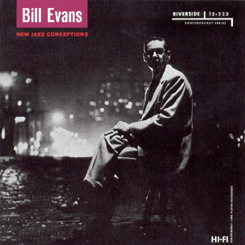
New Jazz Conceptions is the debut album by jazz pianist Bill Evans, recorded in two sessions during September 1956 for Riverside Records.

The Tony Bennett Bill Evans Album is a 1975 studio album by singer Tony Bennett and pianist Bill Evans.
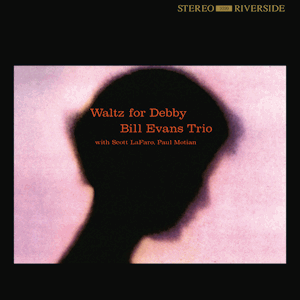
Waltz for Debby is a live album by jazz pianist and composer Bill Evans and his trio consisting of Evans, bassist Scott LaFaro, and drummer Paul Motian. It was released in 1962.
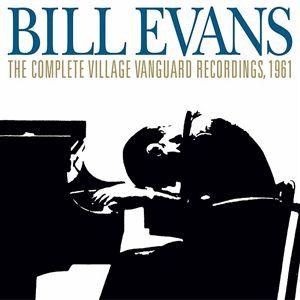
The Complete Village Vanguard Recordings, 1961, a three-CD box set released in 2005, marks the first time the entire Bill Evans Trio's complete sets at the Village Vanguard on June 25, 1961, have been released in their entirety. It also marks the first U.S. release of the first take of "Gloria's Step," which is incomplete due to a power failure.

Orrin Keepnews was an American jazz writer and record producer known for founding Riverside Records and Milestone Records, for freelance work, and for his work at other labels.

Know What I Mean? is a 1962 jazz album by alto saxophonist Julian "Cannonball" Adderley, accompanied by Bill Evans and the rhythm section of the Modern Jazz Quartet. It was released on the Riverside label as RLP-433.
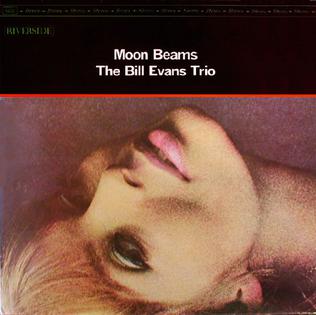
Moon Beams is a 1962 album by jazz musician Bill Evans and the first trio album he recorded after the death of bassist Scott LaFaro. It introduces two important Evans originals, "Re: Person I Knew", and "Very Early," which Evans had actually composed as an undergraduate. The originals serve as bookends to an album otherwise consisting of standards from the 1930s and 1940s.

On Green Dolphin Street is an album by jazz pianist Bill Evans, recorded with bassist Paul Chambers and drummer Philly Joe Jones in early 1959, shortly before the Kind of Blue sessions in which both Evans and Chambers participated, but not released until 1975 as part of the double LP Peace Piece and Other Pieces. In 1995, it was issued on CD by Milestone Records under the current title, which comes from the jazz standard "On Green Dolphin Street" by Bronislaw Kaper, which Evans had first recorded the previous year with Miles Davis.

How My Heart Sings! is an album recorded by jazz musician Bill Evans in 1962, at the same time as Moon Beams.
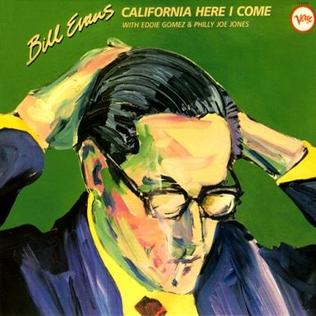
California Here I Come is a live album by jazz pianist Bill Evans. It was recorded in 1967, but not released on the Verve label until 1982 as a double LP. It peaked at number 12 on the Billboard Jazz Album charts in 1983 and was reissued on CD in 2004. The pieces were recorded at the Village Vanguard, where Evans had previously recorded the sets that appeared on the highly influential Waltz for Debby and Sunday at the Village Vanguard, both later comprised on the definitive collection The Complete Village Vanguard Recordings, 1961.

At Shelly's Manne-Hole is a live album by American jazz pianist Bill Evans, released in 1963 as his last recording for the Riverside label. The trio featured Chuck Israels, who followed Scott LaFaro on bass in autumn 1961, and Larry Bunker on drums, who just joined the reformed trio, after Paul Motian had left. An additional eight performances recorded during the trio's May, 1963 engagement at Shelly's Manne-Hole were released on the album Time Remembered.
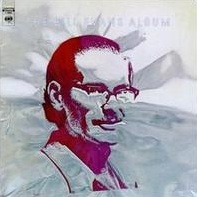
The Bill Evans Album is a recording by the jazz pianist Bill Evans, released in 1971 on the Columbia label. It was his first album to feature all compositions written, arranged, and performed by him. On the record, Evans plays both an acoustic and a Fender Rhodes electric piano.
"Waltz for Debby" is a jazz standard composed by pianist Bill Evans, which became "his most famous tune." He first recorded it as a brief solo piano piece on his debut album, New Jazz Conceptions (1956). Lyrics were added about six years later by Evans's friend Gene Lees. "Debby" in the composition's title refers to Evans's then 3-year-old niece, Debby Evans, whom he often took to the beach.

Re: Person I Knew is a live album by jazz pianist Bill Evans with Eddie Gómez and Marty Morell recorded at the Village Vanguard in New York City in 1974 and released on the Fantasy label in 1981. Additional recordings from Evans' 1974 Village Vanguard performances were also issued on the album Since We Met (1974). The name of the album is an anagram on the name of Orrin Keepnews, who produced for Evans while he was signed with Riverside Records, and who was one of his earliest champions.
This is the discography of American jazz musician Paul Motian.

















